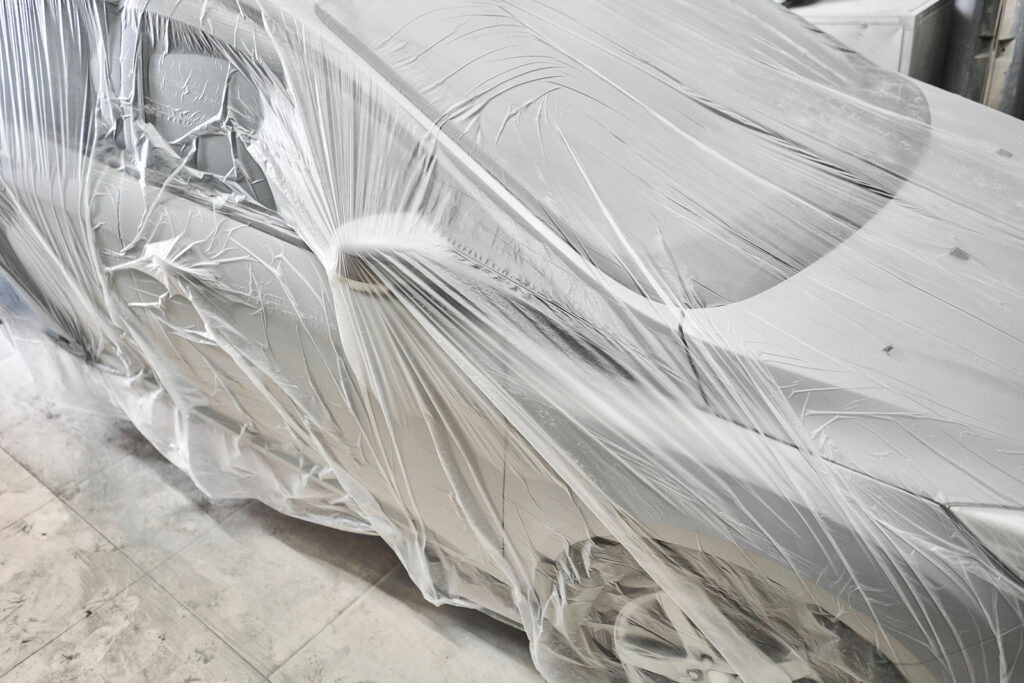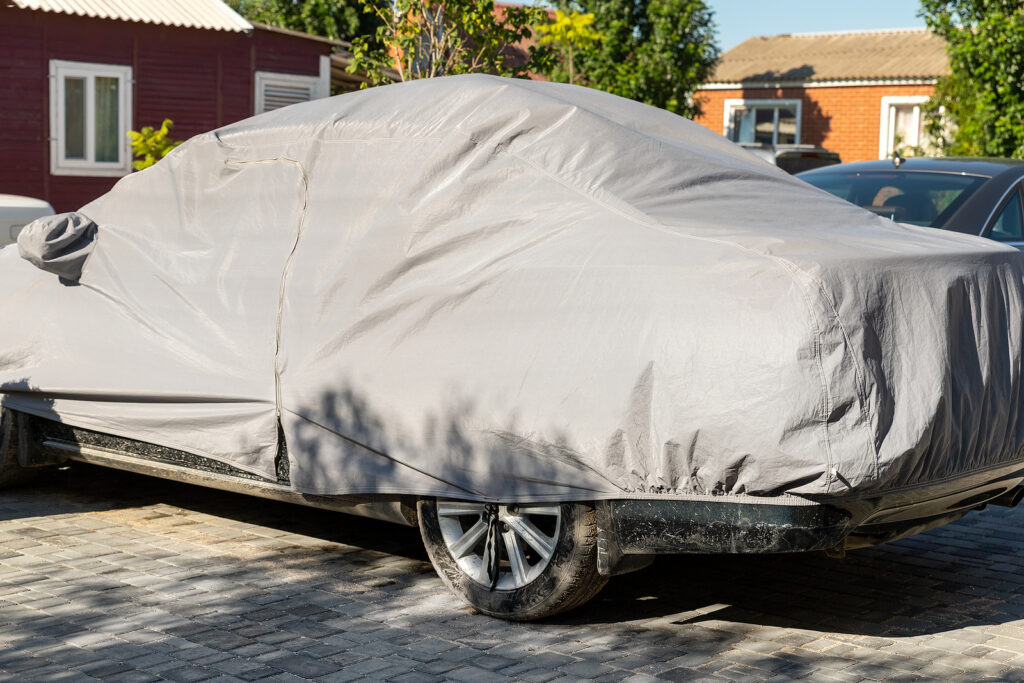Putting a car in storage for an extended or indefinite period of time requires some serious preparation. Otherwise, you can forget maintaining its economic value. Whether you have just cleared a loved one’s estate, wrecked a vehicle you cannot currently afford to repair, or have an extra vehicle with no room in the driveway, use these tips to ensure safe long term car storage.

How to Store a Car For More Than 30 Days
Storing a car for a couple of weeks requires a different preparation process than storing a car for longer than thirty days. Vehicles that sit for longer than a month will experience different effects from non-usage. Essentially, cars that are to be stored for longer than thirty days will require more protection, and therefore, more preparation.
Here are the top 8 tips to focus on when storing a car for more than 30 days:
Keep the Insurance Policy
One of the first things car owners tend to do when preparing to store a car for a long period of time is cancel the insurance policy. But this is a serious mistake. Vehicles can experience all sorts of unanticipated damage while in storage, so it is important to maintain insurance coverage in the case that it happens to your car. Do not make the mistake of canceling the insurance policy just because you are placing your car in storage for the foreseeable future.
Clean the Interior and Exterior
Before placing a car in storage for a long period of time, it is important to clean the inside and the outside of the vehicle. Anything that is causing dirt, dust, or any level of decay in or on your vehicle will only worsen over time. Dirt on the outside of the vehicle can even cause rust and paint deterioration. Take your car to the car wash or do it yourself; it does not matter. Just be sure to clean your car before storing it for a long time.
Get an Oil Change
If you are storing your car for longer than a month, it is important that you switch out the motor oil. Take it into a local automotive mechanic shop for a quick oil change service. It would be wise to allow the mechanic to top off the rest of your automotive fluids as well, including the coolant, transmission fluid, brake fluid, and more.
Fill Up the Gas Tank
If a car is going to be sitting for long period of time without being driven, it is wise to top off the gas tank. Although this might seem counterproductive, especially with the rising fuel prices today, it is an important step to long term car storage because it prevents moisture from building up inside of the fuel tank and prevents the seals from drying out. Moisture buildup inside of the gas tank can cause interior engine damage.
Periodically Charge the Car Battery
It is important to keep the car battery charged when storing a car for longer than thirty days. Otherwise, you can kiss your battery goodbye. If you do not periodically charge the car battery while the car is in storage, you will need to replace the battery entirely once you decide to pull the car out storage.
Do Not Put the Parking Brake On
Many people wrongly assume that the parking brake will make sure a car stays in place when stored long-term. But this is a common mistake. Do not use the parking brake when storing your car long-term. If you are worried about the vehicle rolling forwards or backwards, position center blocks or bricks behind the tires instead.
Prevent Wildlife Tampering
There are several species of nuisance wildlife in Ohio that are notorious for using abandoned or stationary vehicles as shelter. Animals like squirrels, chipmunks, raccoons, opossums, skunks, and even badgers are commonly found nesting within the undercarriages of cars. Not only can this cause extensive internal engine damages, but it can cause the animal to die and leave behind a lingering odor of decay that is very hard to get rid of. If you plan to store a car long-term, be sure to incorporate wildlife abatement strategies to prevent this from happening. In fact, the next strategy will do well for this purpose.
Cover Your Vehicle With a Tarp
A simple but highly effective strategy for protecting your car while in long-term storage is to cover it up with a tarp. You will be shocked to see just how much dust and dirt accumulation eventually builds up on top of that tarp once you decide to pull the car out of storage. You will be thankful that you covered it up when that happens!
Are you looking for an easier way to take a car off your hands without any sort of financial responsibility or obligation to it? Contact GC’s Junk Cars at 513-991-4776 to sell an unwanted car to a professional junk car buyer in Cincinnati, Ohio. We offer free towing and pay cash on the spot!
Related Posts:
8 Ways to Save Money on Car Insurance
How to Wash Your Car Using the Rain
How to Get Rid of Old Gas in a Junk Car


